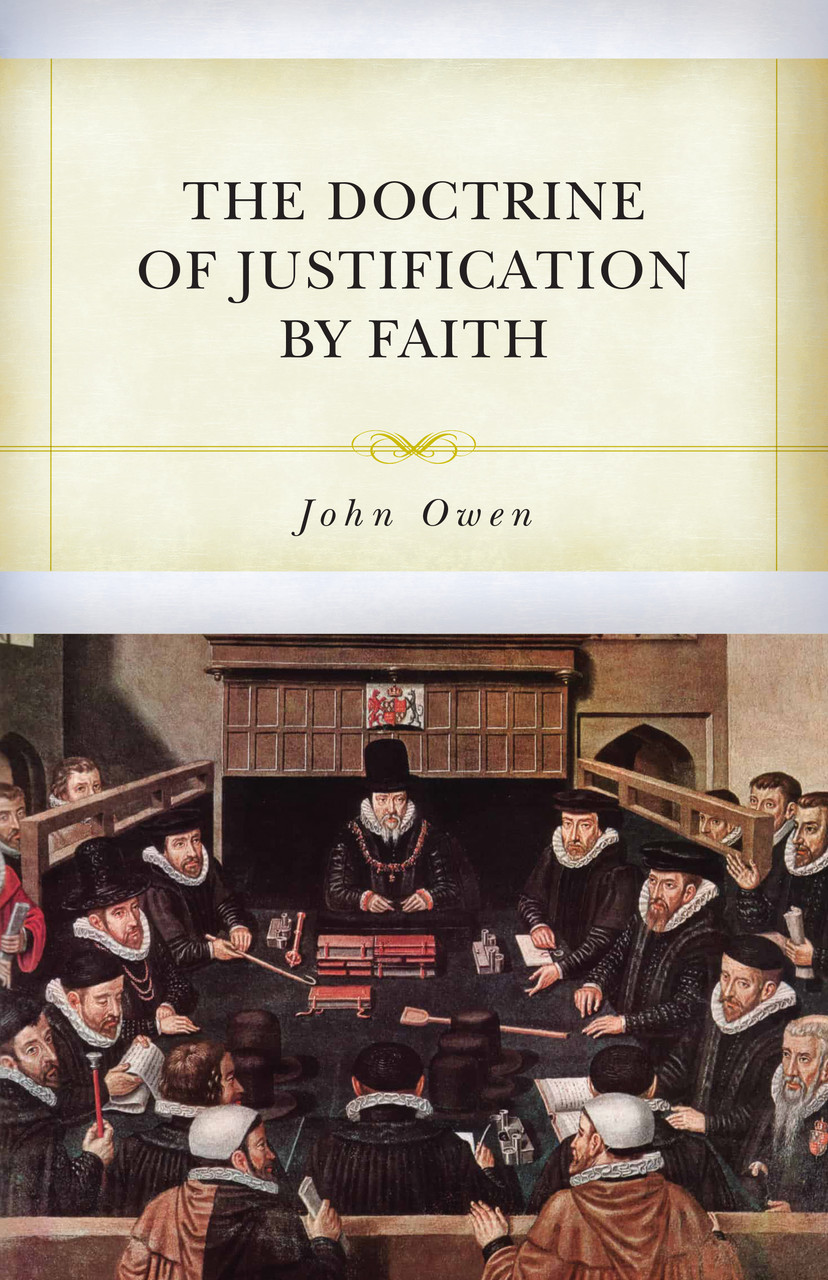Description
JOHN OWEN
John Owen presents one of the most rigorous defenses of the Reformed doctrine of justification ever written. This reprint of The Doctrine of Justification by Faith, taken from the nineteenth-century edition produced by the Presbyterian Board of Publications, will serve as a welcome improvement for many readers. Latin and Greek quotations have been moved to footnotes, and English translations are given for those large blocks of material that Owen left untranslated. It also contains a new introductory essay by Carl R. Trueman, which analyzes Owen’s treatment of justification in light of the highly charged debates of his day. While Owen’s work is technical and challenging, this edition is an effort to make his profound exposition more accessible.
Contents
John Owen on Justification, by Carl R. Trueman
Preface
General Considerations
- Justifying Faith, the Causes, Object, and Nature of It Declared
- The Nature of Justifying Faith
- The Use of Faith in Justification, Its Especial Object Further Revealed
- Of Justification, the Notion, and Signification of the Word in Scripture
- The Distinction of a First and Second Justification Examined. The Continuation of Justification, Whereon It Depends
- Evangelical Personal Righteousness, The Nature and Use of It. Final Judgment, and Its Respect to Justification
- Imputation, and the Nature of It; with the Imputation of the Righteousness of Christ in Particular
- Imputation of the Sins of the Church to Christ. Grounds of It. The Nature of His Suretyship. Causes of the New Covenant. Christ and the Church One Mystical Person. Consequences Thereof
- The Formal Cause of Justification; or, the Righteousness on Account of Which Believers are Justified before God. Objections Answered
- Arguments for Justification by the Imputation of the Righteousness of Christ. The First Argument from the Nature and Use of Our Own Personal Righteousness
- The Nature of the Obedience That God Requires of Us. The Eternal Obligation of the Law Thereto
- The Imputation of the Obedience of Christ to the Law, Declared and Vindicated
- The Nature of Justification Proved from the Difference of the Covenants
- The Exclusion of All Sorts of Works from an Interest in Justification. What Intended by the Law, and the Works of It, in the Epistles of Paul
- Faith Alone
- The Truth Pleaded, Further Confirmed by Testimony of Scripture, Jer. 23:6
- Testimonies Out of the Evangelists, Considered
- The Nature of Justification as Declared in the Epistles of Paul, Especially That to the Romans, Chapter 8
- Objections against the Doctrine of Justification, by the Imputation of the Righteousness of Christ. Personal Holiness and Obedience Not Obstructed, but Furthered by It
- The Doctrine of the Apostle James, concerning Faith and Works. Its Agreement with That of Paul
Endorsements
“John Owen’s treatment of justification is a classic example of Reformed orthodoxy at its best; rooted in the ongoing anti-Pelagian trajectory of Western theology and operating within the established Protestant consensus, Owen yet demonstrates the ways in which that consensus was itself under strain—exegetically, theologically, and socially—in the seventeenth century, and how it was necessary for doctrinal formulation of the doctrine to undergo careful elaboration in order to respond to such. In particular, his defense of the imputation of Christ’s active and passive righteousness and his vigorous rejection of Baxter’s accusations that his theology was antinomian and demanded a doctrine of eternal justification point toward the covenantal/Christological heart of his theology. As such, he is an example of how federal theology could be deployed to set the Protestant confessional consensus on a much firmer conceptual foundation than was the case in the early Reformation, and also how Reformed orthodoxy’s theological structure is highly elaborate and irreducible to sound bites about dogmatizing. Rather, Owen’s treatment exhibits the typical Reformed attention to the exegesis, doctrinal synthesis, and church consensus and is one more piece of evidence as to how and why the Reformed faith became more elaborate in its argumentation during the course of the seventeenth century.”
—Carl R. Trueman, from the introductory essay
About the Author
John Owen (1616–1683) was a leading Puritan minister and theologian who served as a chaplain to Oliver Cromwell and later as dean of Christ Church in the University of Oxford.




Reviews
There are no reviews yet.